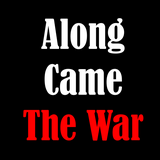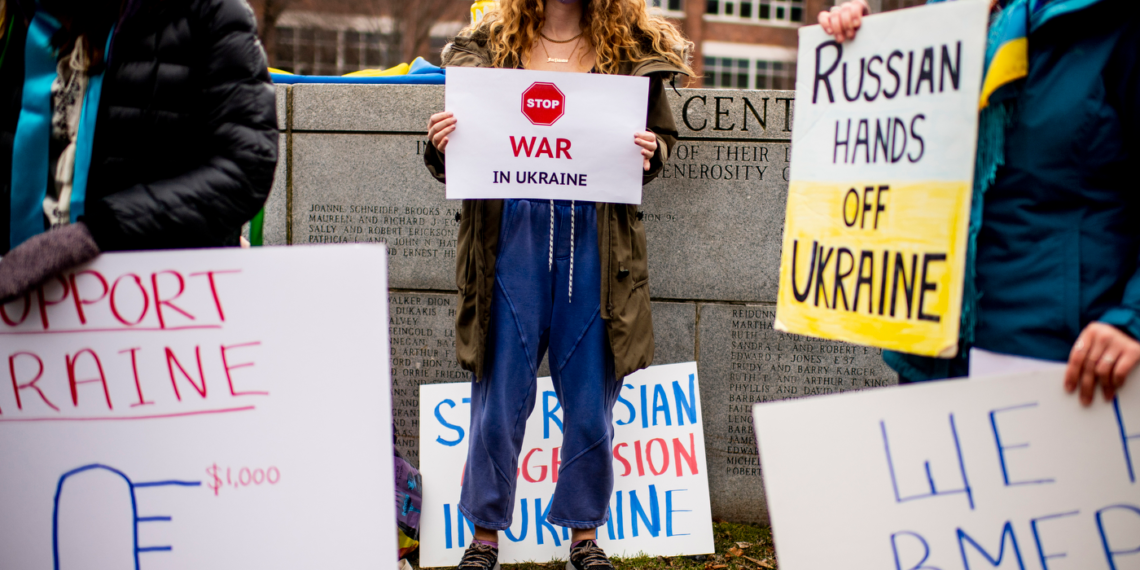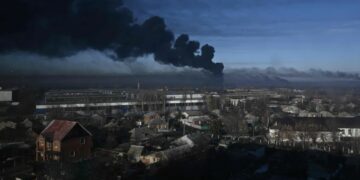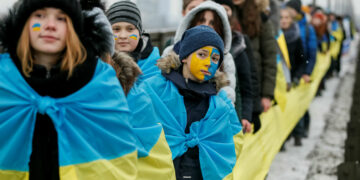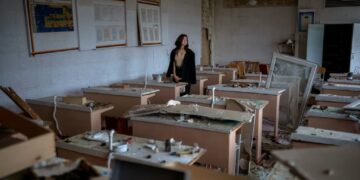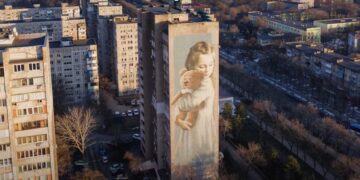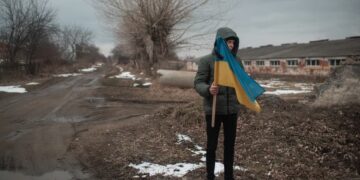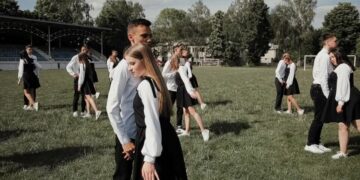Since January 2022, I’ve been studying in Laramie, Wyoming (USA). It’s a college town with a population of 30 000 people in one of the most conservative states in the US, located in the middle of nowhere. When the war broke out that night, I emailed my professors and university administration with a list of things I would like to realize on campus to involve the university community in supporting Ukraine.
The very next day I held meeting with everyone, got acquainted with the marketing department of the university, students’ council, international office, two volunteers of the peace corps who worked in Ukraine. The first day of meetings laid the groundwork for the further activism, since people contacted me with on-campus resources to embrace “Stand with Ukraine” movement and disseminate information about Ukraine.
Working in concord with ASUW, ISS and other university bodies, we managed to organize two rallies, conduct three-day informational tabling, arranged Ukrainian movie screening, produce stickers and buttons with Ukrainian symbols to accommodate in expressing solidarity with Ukraine. One of my professor’s students decided to join my activism and started producing T-shirts, part of the proceeds from which go to the Ukrainian army. Summarily, all the fundraisers I participated in donated near $6000 to Ukrainian Army.
Arranging the events dedicated to Ukraine in the United States, I instantly felt the difference between cultural lens we have. People in the US are massively interested in Russia’s position and Putin’s motivation, people are looking for excuses for Russians. It amazes me every time how all these sentiments towards the GREAT state and the terrible dictator are combined with the lack of elementary knowledge. A simple example: on the campus, there was a conversation between the former US ambassador and professor of economics about Ukraine (as it was called). Many students and seniors came from off campus. For the first twenty minutes, everyone enthusiastically discussed Putin’s ambitions, the lack of freedom in Russia, and the regime’s terrible repressions. I intervened, transferred the conversation to Ukraine.
After the discussion, people approached me asking question on my attitude towards the heroic opposition in Russia. I replied with: “Are you aware of Navalny, who supports the annexation of Crimea?” They: “What? I can’t be that!”. I followed up with: “Have you heard of Krasovsky and Sobchak, who publish statements about Nazi-Ukrainians?” They: “What? No!”. All these sentiments towards Russia are still based on Soviet influence and deeply Russified Slavic studies. Some kind of infantile blind love for Russian culture and mythical soul. Almost nothing is known here about Ukraine and other Eastern European cultures.
Soon, I realized that people in Wyoming have little motive for supporting Ukraine in the long- perspective as of their cursory knowledge about Eastern Europe – for the absolute majority – all countries of this region are nothing more than “Ex USSR states almost identical to Russia”. I noticed, and it made me laugh, people approached me to share facts like: “I once watched a movie about Polish folk dances”, “I was in Warsaw 40 years ago”, “I have friends in Hungary” – as if it were all nearly somewhere in the same place as Ukraine. One woman started talking about her visit to Moscow 35 years ago, then she asked me if I remembered the Ukrainian language a little, after I told about the language situation under Russian influence in Belarus. In the nutshell, there is an urgent need for de-Russifying Slavic studies and raise awareness about Ukraine in foreign societies.
To find a response to this challenge, I set up a number of educational initiatives. Professors and university deans were an asset in this activism. One of them, using the list of books on Ukraine that I have assembled, acquired a couple of dozens of books about Ukrainian history and art to the university library. Enriching the general knowledge on my Motherland, I gave a lecture about modern Ukrainian society and my generation.
Expanding the outreach of the true word on the war, I actively communicate with journalists from various media and states on a daily basis. I myself went to protests in major cities – Denver and New York. Of course, there were some speeches at meetings of the university administration, in the city council, communication with legislators, but this is rather one of the tools to gain more support in organizing any events.
What I find inspiring about advocating for Ukraine overseas is that your personal impact can become palpable for the whole community and result in the significant and valuable support for Ukraine. So, I would love to encourage everyone who is currently abroad to rally and volunteer for Ukraine.
